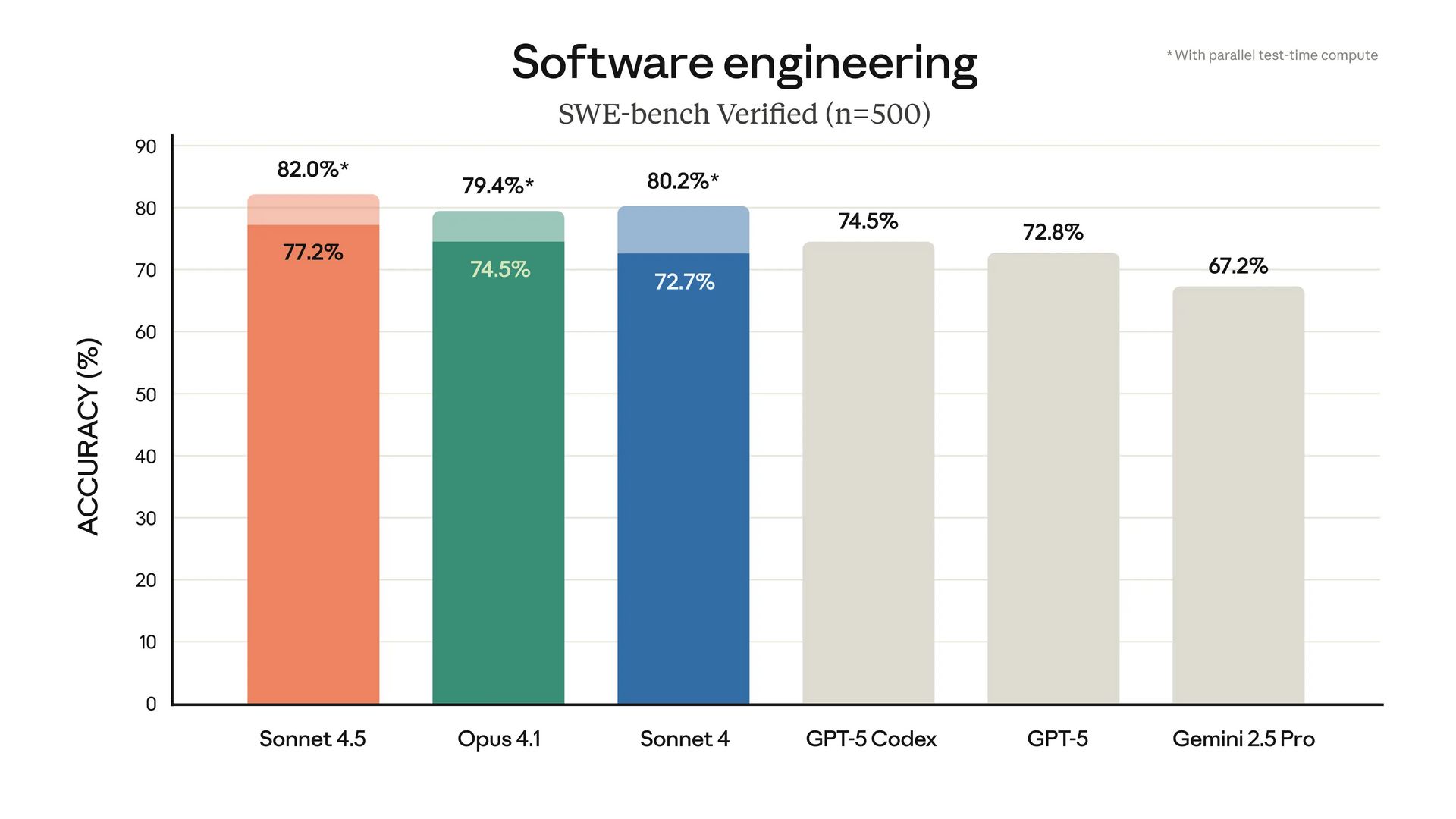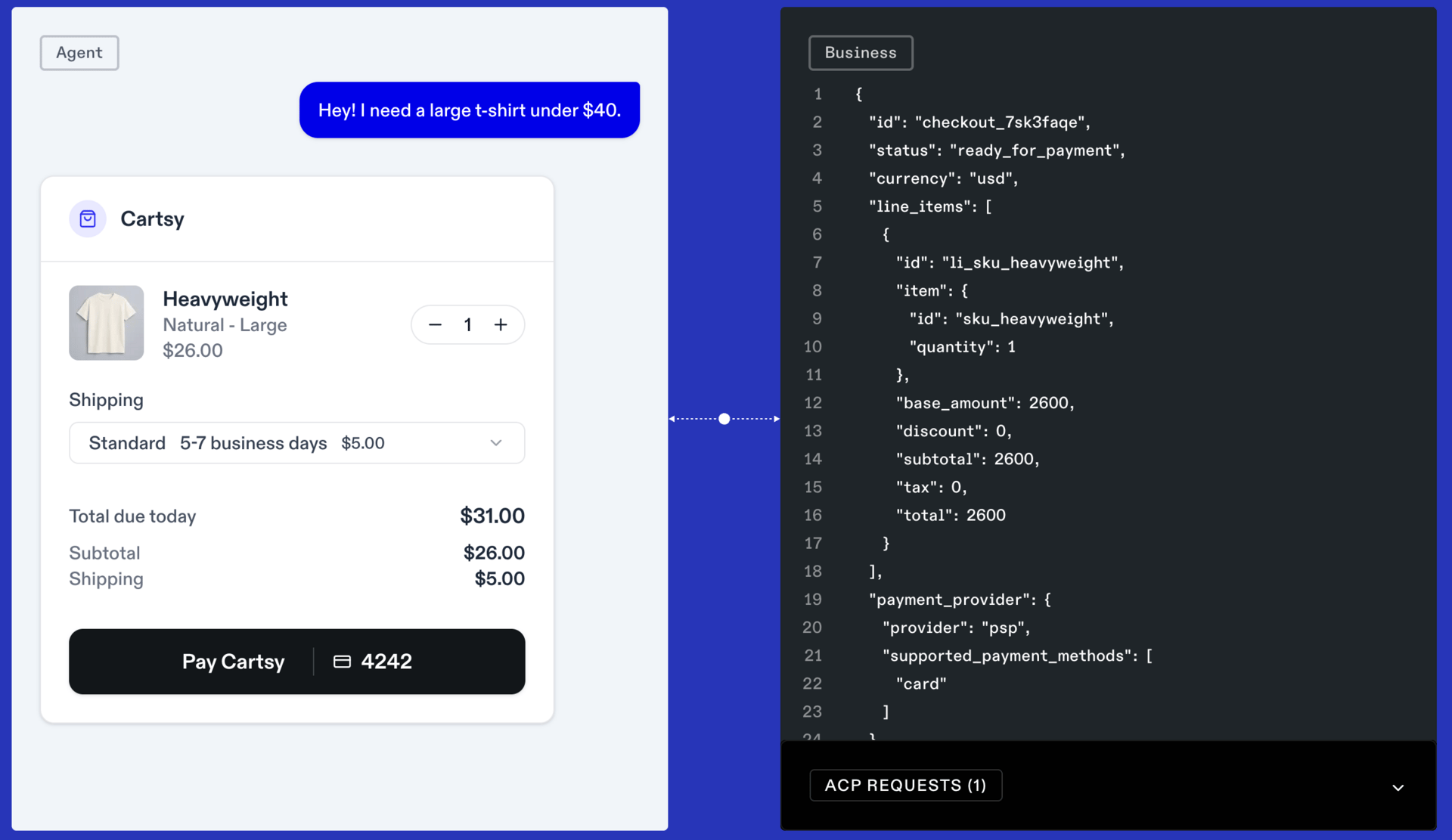- unwind ai
- Posts
- OpenAI Releases Agentic Commerce Protocol
OpenAI Releases Agentic Commerce Protocol
+ Anthropic Claude Sonnet 4.5 is #1 agentic coding model, Microsoft's Agent Mode for vibe work
Today’s top AI Highlights:
& so much more!
Read time: 3 mins
AI Tutorial
Learn OpenAI Agents SDK from zero to production-ready!
We have created a comprehensive crash course that takes you through 11 hands-on tutorials covering everything from basic agent creation to advanced multi-agent workflows using OpenAI Agents SDK.
What you'll learn and build:
Starter agents with structured outputs using Pydantic
Tool-integrated agents with custom functions and built-in capabilities
Multi-agent systems with handoffs and delegation
Production-ready agents with tracing, guardrails, and sessions
Voice agents with real-time conversation capabilities
Each tutorial includes working code, interactive web interfaces, and real-world examples.
The course covers the complete agent development lifecycle: orchestration, tool integration, memory management, and deployment strategies.
Everything is 100% open-source.
We share hands-on tutorials like this every week, designed to help you stay ahead in the world of AI. If you're serious about leveling up your AI skills and staying ahead of the curve, subscribe now and be the first to access our latest tutorials.
Latest Developments
Anthropic just dropped Claude Sonnet 4.5 which hits 82% on SWE-bench Verified, crushing every other model out there, including GPT-5 and Gemini 2.5 Pro. It has also become the state-of-the-art in agentic tool-use, computer use, and Terminal coding.
But this isn't just about coding gains. Sonnet 4.5 can now maintain focus and work autonomously for 30+ hours on complex, multi-step tasks, making it the strongest model for building agents that need to handle serious complexity.
Another interesting part of the release is that Anthropic built it to be their most aligned model yet, with large reductions in sycophancy, deception, and power-seeking. Hopefully, no more “You’re absolutely right,” even when we are horribly wrong. The model is a drop-in replacement for Claude Sonnet 4, available now via the Claude chat, API, and Claude Code at the same pricing as Sonnet 4.
Beyond this, Anthropic is shipping major product updates across its entire stack:
Checkpoints in Claude Code - Claude Code now saves your progress automatically and lets you roll back to any previous state instantly. There's also a native VS Code extension available for Claude Code now. (Are they going for Cursor?)
Claude Agent SDK - Anthropic renamed Claude Code SDK to Claude Agent SDK to reflect what it actually is: a framework for building custom agents for any task, not just coding. You get the same infrastructure that powers Claude Code but you can now build agents for research, content creation, data analysis, or whatever problem you're solving. Do check out the team’s guide on the best practices of using the SDK.
Extended Context & Memory in API - The new context editing feature and memory tool let your agents run even longer and handle greater complexity by managing context more intelligently. This is the same system that enables Claude Code to work autonomously for 30+ hours without losing coherence.
(The most exciting one) Imagine with Claude - This temporary research preview (available for 5 days to Max subscribers) shows Claude generating fully functional software on the fly with zero predetermined functionality or prewritten code. You watch it create applications in real-time, responding and adapting to your requests as you interact. Now this is a demonstration of what's possible when you combine Sonnet 4.5's capabilities with the right infrastructure. You have to watch the demo!
ChatGPT has helped people discover products for a while. Now it can actually buy those products too.
OpenAI has released Agentic Commerce Protocol (ACP), an open standard co-developed with Stripe, that brings one-click checkout straight into agent workflows. ACP defines how agents, merchants, and payment providers talk to each other so the full flow of e-commerce - from browsing to paying to fulfillment - runs smoothly.
It’s already live inside ChatGPT with Etsy digital downloads as the first merchant onboard.
Google also dropped its own Agent Payments Protocol (AP2) last week, which makes the space look crowded at first glance. But ACP and AP2 are solving different pieces of the same puzzle: one is about the entire commerce flow, the other about payment rails. We’ll compare them in a detailed table later, but first, here’s what ACP brings to the table.
Key Highlights:
Open spec, but draft stage - ACP is published as an Apache-2.0 open source spec on GitHub, currently marked draft. While the protocol design is being refined, OpenAI has already rolled out ACP inside ChatGPT for Etsy digital downloads, showing it works in practice even as the spec evolves.
Checkout as a protocol - ACP defines JSON-based interactions for catalog discovery, checkout sessions, and order updates. Agents don’t just “redirect” to a site; they speak a standard format to request prices, shipping, taxes, and confirmations directly from merchants.
Stripe integration, but not Stripe-only - Merchants using Stripe can enable ACP with just a line of code. Those not on Stripe can still integrate using the Delegated Payments spec, which supports other processors without ripping out existing infrastructure.
Scoped, auditable tokens - Every payment relies on tokens that are short-lived and tightly scoped: merchant, amount, and expiry. This prevents overcharging or misuse, and provides merchants and users with an audit trail for agent-initiated transactions.
Now, here are the differences between Google’s AP2 and OpenAI’s ACP:
Feature | AP2 | ACP |
|---|---|---|
Core Focus | About the payment/ financial leg of agentic commerce | Full commerce integration: product discovery → checkout → payment → fulfillment |
Payment Support | Payment-agnostic: cards, bank transfers, stablecoins, crypto, etc. | Starts with support via Stripe; also supports “Delegated Payment” for non-Stripe processors. |
Trust/authorization mechanism | “Mandates” (signed user authorizations) to bind agent actions to user intent & enable audit/accountability | Payment tokens scoped to merchant & amount; explicit user confirmation. Delegate payments spec handles permissions |
Integration scope | Works as an extension to A2A and MCP to add the payments layer | Can run on top of an agent that already uses MCP for tools, or A2A to talk to other agents. |
Turn AI Into Your Income Stream
The AI economy is booming, and smart entrepreneurs are already profiting. Subscribe to Mindstream and get instant access to 200+ proven strategies to monetize AI tools like ChatGPT, Midjourney, and more. From content creation to automation services, discover actionable ways to build your AI-powered income. No coding required, just practical strategies that work.
Quick Bites
Microsoft releases Agent Mode to ‘vibe work’ with Office apps
Microsoft is rolling out Agent Mode (powered by OpenAI’s models) for Excel and Word, along with Office Agent (powered by Anthropic’s models) for PowerPoint -bringing reasoning models into Office productivity for ‘vibe working’. For example, Agent Mode can autonomously build complex spreadsheets with formulas and visualizations, run analysis, and basically “speak Excel” natively. Office Agent, on the other hand, generates full PPT decks from simple prompts, while you can granularly control how the agent functions. Available to those enrolled in their Frontier program.
Lovable makes backends and AI functionalities “just work”
Lovable has closed the loop on full-stack development. Until now, you still had to wire up your own backend infrastructure, like Supabase for databases, auth flows, etc. Lovable Cloud, a built-in backend for Lovable apps, now handles all of that. Need user profiles and a database? Just ask, and it provisions everything with built-in security and scaling.
They're also launching Lovable AI, which adds AI functionality to your apps the same way: describe what you want (document Q&A, sentiment analysis, avatar generation) and it integrates Gemini-powered features directly. No setup, API keys, or separate billing.
DeepSeek just made long-context inference 85% cheaper
The big whale keeps cooking. DeepSeek just dropped DeepSeek V3.2, a new experimental model debuting their new sparse attention mechanism. The model was trained to ignore irrelevant tokens and process only the top 2K out of 128K. This slashed long-context inference costs by a staggering 85% while maintaining the same performance as V3.1-Terminus. The model is now available on Hugging Face and via their app, web, and API with 50%+ API price cuts.
Tools of the Trade
Superagent - Open-source security layer for AI agents that detects and blocks prompt injections, malicious tool calls, and data leaks in real-time. It integrates at the API layer, tool invocation level, and CI/CD pipeline to inspect requests before they reach production agents.
Nexa SDK - An on-device inference framework that runs any model on CPUs, GPUs, and NPUs across any backend - CUDA, Metal, Vulkan, and Qualcomm NPU. It supports text, image, and audio inputs.
Fabric API - Build video apps with image-to-video and lip sync. This is VEED’s Fabric model API that takes an input image and an audio clip, and generates talking videos of up to 60 seconds long with proper lip sync and natural expressions.
Awesome LLM Apps - A curated collection of LLM apps with RAG, AI Agents, multi-agent teams, MCP, voice agents, and more. The apps use models from OpenAI, Anthropic, Google, and open-source models like DeepSeek, Qwen, and Llama that you can run locally on your computer.
(Now accepting GitHub sponsorships)
Hot Takes
BECAUSE of ai coding agents… great human devs are MORE VALUABLE than before
this isn’t a temporary truth (along the path to ai coding agents agi)
devs need leadership, ai devs even more than human
~ Ry WalkerMicrosoft lost the AI race when it made Mustafa Suleyman its CEO of AI.
~ Pedro Domingos
That’s all for today! See you tomorrow with more such AI-filled content.
Don’t forget to share this newsletter on your social channels and tag Unwind AI to support us!
PS: We curate this AI newsletter every day for FREE, your support is what keeps us going. If you find value in what you read, share it with at least one, two (or 20) of your friends 😉




Reply